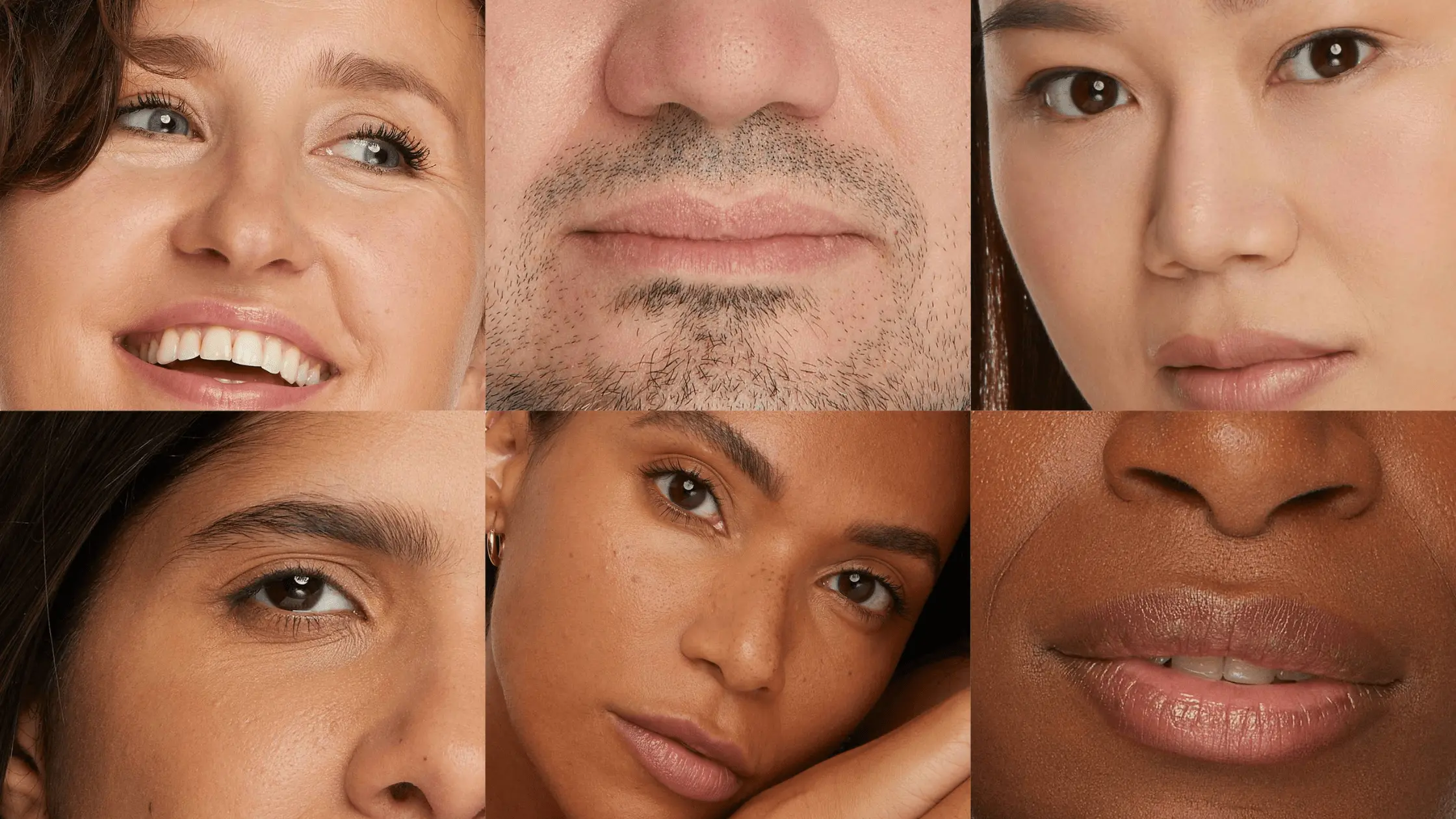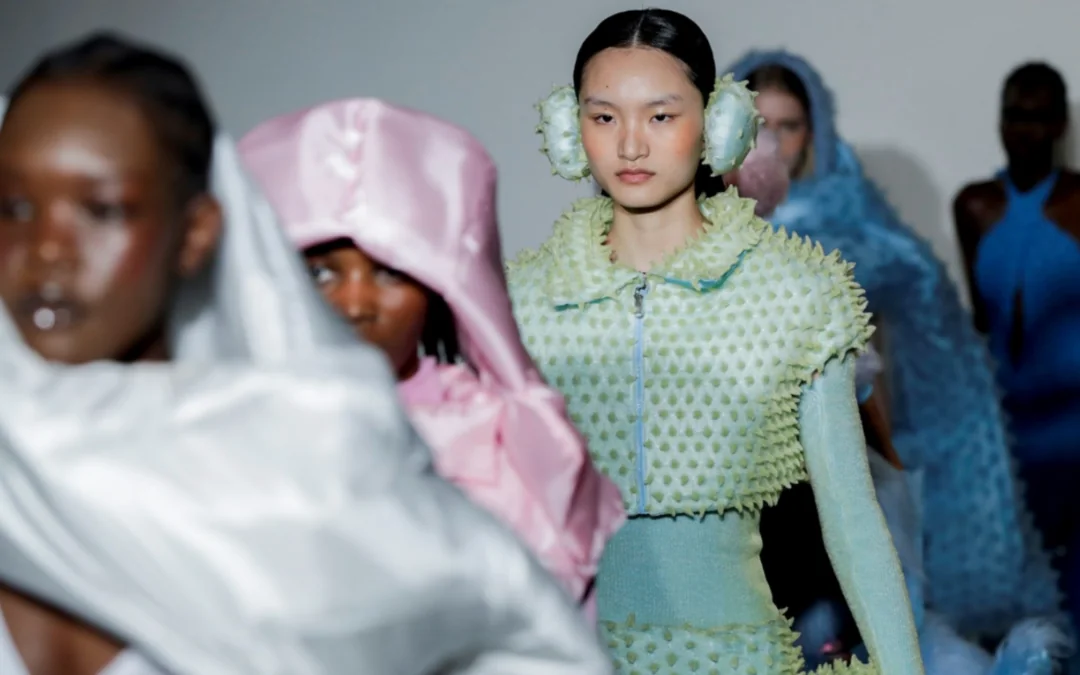Simi Lindgren, CEO and Founder of Yuty – a beauty artificial intelligence model – is a medical school dropout turned award-winning B2B SaaS leader determined to empower brands via AI personalised shopping experiences. Here, she shares her experience unpicking biases in tech
Back in August 2023, when Ai was a mere twinkle in the eye of beauty business leaders, the British Beauty Council sat down with the Founder and CEO of Yuty. Now, with more and more businesses adopting the technology and the IMF estimating that – if AI is fully embraced – it can boost productivity by as much as 1.5 percentage points a year, her interview is as resonant as ever. Read on to learn more about the technology and the importance of accessibility and diversity when using Ai.
Merge the words ‘you’ and ‘beauty’, and you’ve got yourself Yuty, the brainchild of Simi Lindgren launched back in 2020. The AI powered software elevates the beauty shopping experience by delivering hyper-personalised product recommendations. In under 3 minutes, Yuty expertly analyses a customer’s genetics, lifestyle habits, climate factors and preferences to generate a tailored list of real-time beauty product recommendations and a comprehensive report.
The models are trained on representative and synthetic datasets, covering a wide range of phototypes, features, and conditions, including atypical skin conditions, non-Eurocentric, non-traditional facial landmarks, and phototypes 1-6.
After launching the tech model on her own conscious beauty marketplace YUTYBAZAR, Yuty is now being harnessed by brands as a storefront API designed to customer conversions, customer loyalty, and average order values, whilst reducing customer acquisition costs (i.e. digital advertising) which were thought to increase by 92% last year.
AI models like this have existed for some time now, but Yuty harnesses patented technology – because it’s one of a kind. ‘Essentially, we generate synthetic datasets to address any limitations in available data irrespective of a person’s race, gender or ability and match them to haircare, skincare, body care and cosmetic beauty products,’ starts Lindgren. ‘Yuty is the first beauty AI model to leverage GANs to create a diverse and balanced data set.’
That sounds impressive, but let’s take a step back. What are GANs?
Generative Adversarial Networks (GANs) is a form of Generative AI that creates imagery by learning the patterns and irregularities of data inputted by humans to create new data sets. Yuty uses this technology to create 1000 fake images every 108 minutes, to address any limitations in datasets. Basically, the machine plugs the gaps.
‘Inclusivity was a challenge that I felt when I first started the business,’ explains Lindgren, before explaining that her platform is the first of its kind to recognise fine lines, wrinkles and hyperpigmentation, irrespective of a person’s skin tone.
She continues: ‘Historically AI has been homogenous, rarely are the builders black or brown – let alone diverse females. If the technology is being built by people that don’t recognise these nuances, their data sets aren’t going to be balanced and diverse, and output is going to be limited.’
With backing from Ada Ventures, Venrex, and Google, it’s undeniable that the tech fills a gap in the beauty industry that consumers and conglomerates have been searching for. But, it’s not about working with big budgets for Lindgren.
‘We are not solely focusing on the big brands of the world, we are focusing on integrating Yuty onto SMEs websites,’ she shares, before pointing to the Glowcery – the winner of Glossier’s Black Girl Fest Grant winner – as an example. ‘We want to democratise AI and work with brands that wouldn’t have the funds to gain access to these personalisation engines.’
On top of tackling accessibility within the tech space, Lindgren is increasingly aware of the transparency challenges that exist within the space. ‘consumers should feel comfortable in the knowledge that their data is being used ethically and that it’s benefiting them – not just big business,’ she shares.
Yuty is compliant with the proposed Artificial Intelligence Act (AIA) in the EU. Originally published in April 2021, the draft guidance takes a risk-based approach to the application of AI systems within different industries and provides recommendations on transparency, clarity of information and more.
Lindgren makes it clear as our call comes to an end that this technology doesn’t just benefit consumers, it can work to plug gaps in decision-making at brands too: ‘So many brands make DEI goals, but if they are using technology that doesn’t recognise everybody, how can they make effective data driven decisions about creating an inclusive and equitable beauty market for all?’
As conversations around AI reach feverish levels, the Council is interested to hear more about how brands have been able to implement the technology into business models. Tell us more via email.





